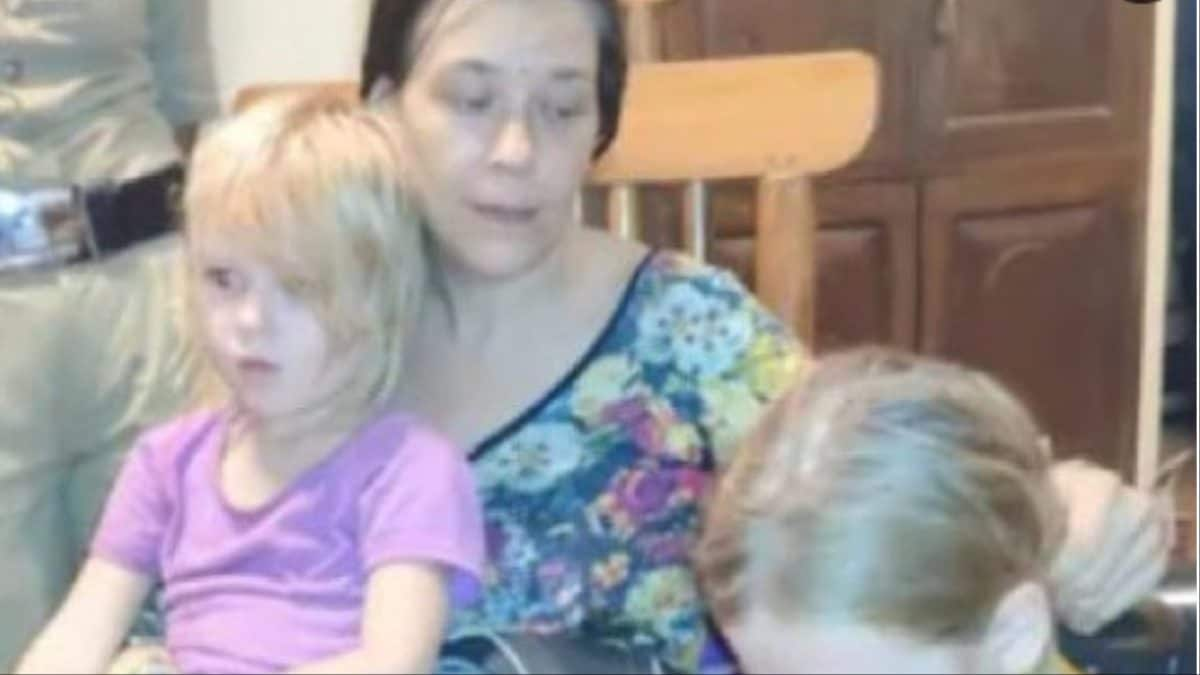Last Updated:
The Supreme Court reprimanded the husband of a Russian woman after she was found living in a cave in Karnataka. In the court, the man had challenged their repatriation to Russia.

Russian woman, her two daughters, found living in a cave in Karnataka (Photo: Social Media)
Months after a Russian-origin woman and her two young daughters were rescued from a cave in the forested Ramatirtha Hill area of Gokarna, Karnataka, the Supreme Court pulled up her husband on Monday, as he challenged a Karnataka High Court order that permitted the government to issue travel documents for their repatriation to Russia.
The bench of Justices Surya Kant and Joymalya Bagchi questioned the man, identified as Dror Shlomo Goldstein, over his rights and why he was staying in Goa while his wife and daughters continued to live in the cave after their visa had expired on April 17, 2017.
Recommended Stories
“What is your right? Who are you?” Justice Surya Kant asked the petitioner’s counsel.
In response, the counsel said that the petitioner was the father of the children and sought time to serve a copy of the petition on the Union of India.
The bench, however, appeared unconvinced and said, “Please show us any official document that you are declared the father.”
“Why should we not direct your deportation?” Justice Kant asked.
Justice Joymalya Bagchi also expressed sharp disapproval of the petitioner’s conduct, observing, “Publicity litigation… What were you doing when your children were living in a cave?”
Justice Kant further questioned, “What were you doing staying in Goa?”
Following the pointed remarks from the Bench, the petitioner sought permission to withdraw the plea, which the court allowed.
Before concluding the hearing, Justice Kant observed, “This country has become a haven, anybody comes and stays.”
WHEN WAS THE RUSSIAN WOMAN AND HER DAUGHTERS FOUND?
On July 9 this year, the state police discovered the woman and her daughters living in the cave. Authorities later confirmed that the woman, identified as Nina Kutina (40), had overstayed her visa by over eight years.
According to Gokarna police, on July 9, at nearly 5 pm, while patrolling Ramatirtha Hill to check for the safety of tourists, the police inspectors and staff of Gokarna police station gathered and checked the cave located within the forest area on the hill.
As the cave was inspected, it was found that the woman was living there with her two young daughters, Kumari Prema (6 years 7 months) and Kumari Ama (4).
When questioned, the foreigner stated that she had come from Goa with her children, as she was interested in staying in the forest for “worshipping God and meditating.”
Police noted that the cave was located in a landslide-prone area and surrounded by venomous wildlife, posing serious risks to the family. After explaining the dangers, the woman agreed to move.
She and her two young children were brought down safely from the cave on the hill. Then, as per her wish, she was safely delivered to the ashram of Yoga Ratna Saraswati Swamiji, associated with the NGO Shankara Prasad Foundation in Bankikodlu village of Kumta taluk, under the protection of female police personnel.
Initially reluctant to disclose their identification, Kutina later revealed details to police, the Women and Child Welfare Department, and Swamiji, stating that their passports and visas had been lost.
However, during a subsequent search of the cave and surrounding forest, police and forest department officials recovered her documents, revealing that her visa had expired on April 17, 2017.
Following the discovery, necessary steps are being taken to repatriate the woman and her children to Russia.
They are currently under the care of the Women’s Reception Centre for their safety.
THE KARNATAKA HIGH COURT ORDER ON THEIR REPATRIATION
Earlier, the Karnataka High Court had upheld the Union government’s decision to facilitate the repatriation of the woman and her daughters.
The woman’s husband had moved the High Court claiming to be the daughters’ father. He sought to restrain the Union from proceeding with the “sudden deportation” of the daughters from India to any other country.
On behalf of the petitioner, reliance was placed on the UN Convention to submit that the court must examine whether authorities were acting in the best interest of the two minor children.
The state, on the other hand, argued that on receipt of the DNA report of the younger child, a communication was sent to the concerned person in the Russian government.
Following this, the Russian government issued emergency travel documents (ETD), which are of very short validity (in this case, it was valid from September 25 to October 9).
As such, a request was made for the issuance of exit permits to enable the departure of the mother and the children from India as soon as possible.
It was also pointed out that the mother had travelled on a Russian passport and she had overstayed.
After hearing the parties, the High Court noted that the mother and the daughters were found to be living in isolation without any facilities, and the petitioner was unable to explain the situation.
The mother expressed willingness to be repatriated to Russia, and the country showed readiness to take her and her daughters back.
ALSO READ | Russian Woman Calls Bengaluru Best City To Live In India, Internet Reacts
About the Author

Vani Mehrotra is the Deputy News Editor at News18.com. She has nearly 10 years of experience in both national and international news and has previously worked on multiple desks.
Vani Mehrotra is the Deputy News Editor at News18.com. She has nearly 10 years of experience in both national and international news and has previously worked on multiple desks.
October 06, 2025, 14:47 IST
Loading comments…
Read More



